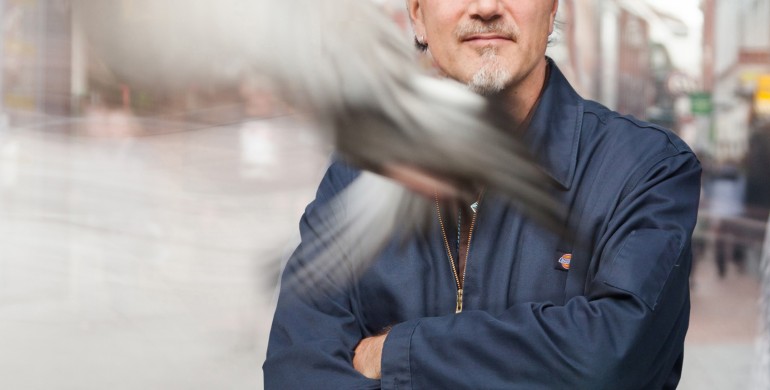Dick Rijken [NL]
Introduction talkDuring Coded Matter(s) #2: Sound Hackers, Dick Rijken will be giving an introduction to the afternoon between 14:30 and 14:50. His talk will be about the history of STEIM and its changing role as a lab and nexus of information sharing. He will also talk about the influence of the network society on his institute. He will also relate this influence to the practice of developing and making hybrid instruments, as well as on music in general.
“We see everywhere the network society has ended the concept of linear development. Labs are no longer the sole inventors and music styles don’t succeed each other, but are entangled with each other in a sea of atemporality and possibility. These developments must be dealt with by each surviving lab. STEIM explicitly chose to become a ‘network lab’, a place where people can learn just as much from each other as they can from STEIM. Our physical presence in the shape of our studios and guest houses remain however crucial in this.”
Dick Rijken was founding director of the Interaction Design department at the Utrecht School of the Arts in the early nineties. Since then, he has worked at VPRO, a broadcasting organisation, where he was director of their digital department in the late nineties, as director of TBWA/e-company, a commercial internet agency, course leader of the Design Masters Degree at the Sandberg Institute, and as project manager and strategic consultant for many digital media projects.
Currently, he is director of STEIM, a network lab for electronic live performance, and professor in ‘Information Technology and Society’ at the ‘The Hague University of Applied Sciences’ where he researches the changing role of cultural (heritage) institutions in the network society and the possibilities of design thinking in different domains. He also works as an independent consultant. His main interest is how the network society impacts cultural production. Art and culture will be more important than ever before in the 21st century, but not in the way we’ve known it.
WebsiteFollow on Twitter